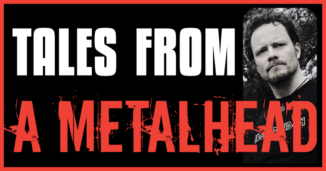
Summary
Portrait Records
Release date: March 4, 1985
User Review
( vote)Germany’s Accept is a band people either like or hate; there seems to be no compromising. The thing that turns most listeners off right away is lead singer Udo Dirkschneider’s “gravelly” vocals. Once you get past Udo’s unique vocal presentation, you’ll find that there is a lot to like about Accept, including heavy, catchy guitar riffs, classically influenced guitar solos, anthem rock choruses, and a tight rhythm section. Accept succeeded once again with Metal Heart at maintaining their own unique sound.
Metal Heart was released at a time when Big-Haired bands with commercial grinds and catchy choruses were coming out of L.A. by the dozen. This release can best be categorized as one of their more commercially Accept-able releases. This album was a little more diverse than some of their previous releases (e.g., Breaker and Restless And Wild) as the band tried to gain some FM radio popularity with a few of the tracks on this album (e.g., “Screaming For A Love Bite”).
Throughout the album, the rhythm section of Peter Baltes (bass) and Stefan Kaufmann (drums) really shines. The Bass and Drums are tight, clean and dead on. Part of this credit has to go to the clean 32-track digital recording and production of Producer Dieter Dierks (also know for his work with another German band called the Scorpions).
The title track, “Metal Heart,” starts off in fine fashion. With an opening containing chants, big drums and an electric sitar, the song breaks into a driving, riff-laden song containing cleanly produced, full-sounding guitar rhythms and a big drum sound. The chorus on this track is multi-layered, making this song a good arena rock choice. Wolf Hoffmann (guitar) also delivers with more of his usual classically influenced soloing.
The next track, “Midnight Mover,” is slightly more commercial sounding then the title track … it’s more of a straight-ahead rock song. “Midnight Mover” contains a catchy, mid-tempo guitar riff and chorus. The track plays it fairly safe, but still succeeds as becoming a background tune to be played loud with your car windows down.
“Up To The Limit” starts off with a heavy, thumping bass line and a stabbing guitar rhythm. Another mid-tempo, light-headbanging anthem that plays it safe until Wolf Hoffmann (guitar) unleashes his brand of guitar soloing.
“Wrong Is Right” picks up the pace a few notches. This track is up-tempo and laden throughout with double-bass drums. Event though the pace of this track is faster than the previous two, it just seems like filler material. The track is one of the shortest on the album, and seems to be sandwiched between more commercially acceptable tracks. Udo seems to strain his vocals a bit when almost shouting the chorus on this track. Wolf once again delivers, though, with an ear catching, sharp guitar solo.
“Screaming For A Love Bite” represents possibly the most commercial song on the album (the other being “Living For Tonite”), and opens with choppy guitar riffs coupled with a straight-ahead rhythm. Granted this song is commercial, but it should still get your head banging during the fill sections (non-chorus). This track contains one of Wolf’s most catchy, melodic solos on the album. Wolf plays this solo with a lot of heart and ends up saving an otherwise safe song.
“Too High To Get It Right” starts out sounding similar to a typical track from AC/DC, containing a solid drum line and a guitar harmony with reverb. The song includes harmonized anthem choruses played off of Udo’s chorus line and contains some filler guitar by Wolf. The song is mid-tempo with a decent lead provided by Wolf once again.
“Dogs On Leads” starts out with a thumping bass line (or quite possibly Moog Taurus pedals). Faint guitar strumming can be heard in the distance. Udo then adds a soft vocal line or two before the track explodes into a full-fledged guitar slam crescendo. The song then quiets down to more soft vocal lines and gentle guitar strumming before delivering the harmonized anthem rock chorus line. This change in tempo continues until the tempo slows up and Udo starts sounding like Bon Scott of AC/DC. It’s at this moment that Wolf demands attention by unleashing a balls grabbing solo that would make K.K. Downing of Judas Priest proud.
“Teach Us To Survive” picks up the pace slightly with a steady rhythm line and double-bass drums again. In the middle of the song, the band pauses for a slight dose of “fingersnipping” (as the liner notes describes it), also known as “finger snapping.” This too feels more like a filler track, and is not one of the highlights of this album.
“Living For Tonite” immediately belts out a Scorpions-influenced guitar riff and bass rhythm. The song remains catchy while trying to be commercially acceptable. Eventually, the song slows up and is momentarily led by a choppy guitar riff, a booming, thumping bass line, rock steady drumming, and some moaning and groaning by Udo. All this is an introduction to Jorg Fischer (rhythm guitar), who surprisingly delivers one of the most melodic solos on the album. He shows Wolf that he can smack us in the face with a balls grabbing solo as well! The solo oozes with classical goodness.
The last track, “Bound To Fail,” appropriately ends the album as it starts out with a fist-shaking chorus. One can envision Metalheads all over the world thrusting their clenched fist in the air during the chorus on this track. The track ends with a fading guitar solo and chanted vocals almost similar to how the album opened.
All in all, Metal Heart was a solid performance by Accept. It’s not as ballsy as the band’s Restless and Wild release, but still a solid offering given the time frame it was released (in the mid-80’s). This was an attempt in Accept’s history to get airplay on some of the USA – FM radio airwaves. It was during a time when dedicated Metal radio stations and radio shows were trying to make a go at it and survive. In part, Accept had some success as some of the more commercial tracks from this album did, in fact, enjoy occasional radio play. In many ways, these tracks served as an introduction of Accept to many in North America, and it proved internationally that there was more than one German band that could rock your socks off!




Be the first to comment